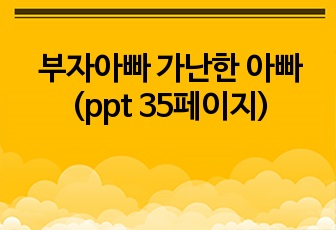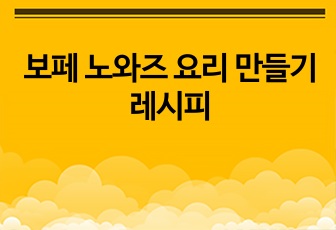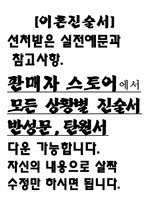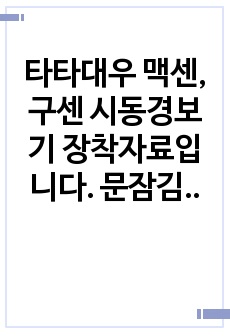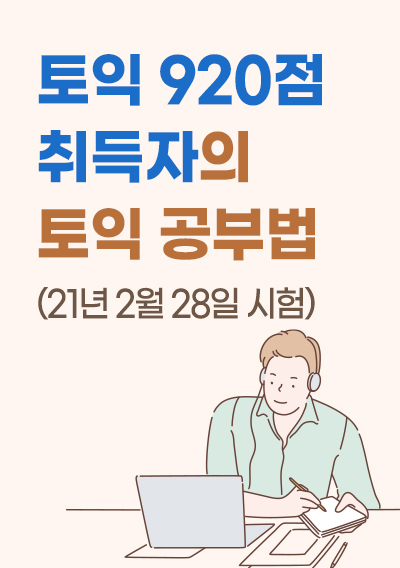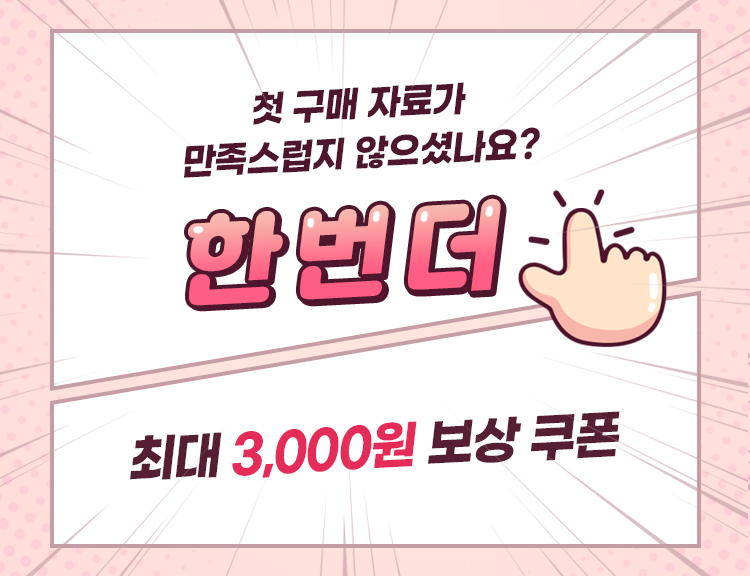2021년도 간호연구 계획서 (연구제목 간호대학생의 스트레스 대처방식이 우울에 미치는 영향)
반앤제이
다운로드
장바구니
소개글
2021년도 간호연구 계획서 (연구제목 간호대학생의 스트레스 대처방식이 우울에 미치는 영향) 자료입니다!처음으로 진행하는 간호연구 계획서라 많이 헷갈렸는데, 교과서 참고하고 교수님께 피드백 받아서 최종적으로 제출한 간호연구 계획서입니다. 처음이라 어려우신분들은 해당 자료가 큰 도움이 될 거라 생각합니다!
목차
Ⅰ. 서론1. 연구의 필요성
2. 연구목적
3. 연구문제 진술
4. 용어정의
Ⅱ. 문헌고찰
1. 간호대학생과 일반대학생의 스트레스, 우울 및 자살사고 비교
2. 간호대학생의 우울정도 및 영향요인
3. 간호대학생의 생활스트레스, 우울이 자살생각에 미치는 영향
4. 간호대학생이 대학 생활 중 겪게 되는 스트레스와 우울과의 관련성
5. 간호대학생의 학업스트레스가 우울에 미치는 영향과 학업탄력성의 조절효과
Ⅲ. 연구틀
1. 연구 틀
2. 연구가설
Ⅳ. 기대효과 및 활용 방안
1. 기대결과 및 활용방안
V. 참고문헌
본문내용
간호대학생은 엄격한 교과과정, 과중한 학습량, 엄중한 행동규범, 환자에 대한 책임감, 환자의 고통이나 죽음 등과 같은 임상에서의 스트레스, 다양한 임상 상황에서의 실습수행, 간호사 국가시험에 합격해야 하는 심리적 부담감, 의료기술의 급격한 변화 등으로 다른 전공의 대학생에 비해 더 높은 수준의 스트레스를 경험한다.이러한 스트레스가 지속되면 실습에 적응하지 못하고 이와 관련된 여러 가지 신체적 건강문제와 불안, 실패감, 긴장, 좌절, 우울 등의 심리적 어려움을 경험하게 된다. 그러므로 간호대학생의 경우 우울과 같은 정신건강에 대한 심각한 우려를 잠재적으로 안고 있다. 즉, 스트레스는 적절히 관리되지 않으면 우울이 발생할 수 있으며, 우울은 간호대학생의 정신문제 중 가장 높은 순으로 나타났다. 그런데 대학 시기는 학교에서 직장으로의 이행기로 간호대학생에서 이 시기에 우울이 지속적으로 증가하게 되면 학업성취도가 저하되거나 의욕상실로 이어질 뿐 아니라 학업을 포기하거나 중도 탈락하는 상황에 이를 수 있다는 보고도 있다. 간호사는 힘들고 스트레스가 많은 전문직으로 고려되며, 간호대학생은 타 학과 학생들에 비해 과중한 학습뿐 아니라 교과과정 중에 실무현장에 조기 노출되는 임상실습을 경험해야 하므로 스트레스와 우울이 증가될 수 있다.
지나친 스트레스 경험은 학업부진뿐만 아니라 향후 간호사 직무수행에도 영향을 미치므로 사전에 예방할 필요가 있다.
간호대학생은 과중한 학습 부담과 임상실습 등의 어려움 때문에 우울에 취약한 집단으로 간호대학생이 스트레스를 긍정적인 방향으로 재구성하고 관리하기 위해서는 스스로의 우울을 인식하고 평가하는 것이 필요하다. 초기에 스트레스나 우울을 잘 평가하고 적절하게 관리하는 것은 이후에 나타나는 문제들을 감소시키고 학교생활 촉진의 중요한 자원이기도 하다. 그러므로 학업으로 인한 시간적 제약으로 의학적 치료에 적극 대응할 수 없는 간호대학생에게 예방이나 완화 방안이 필요하다.
참고 자료
어용숙, 김요나, 김혜옥, 남문희, 조규영 (2019). 간호연구 및 통계(281~289p.g). 경기도: 수문사.신소홍 (2016). 간호대학생의 학업스트레스가 우울에 미치는 영향과 학업탄력성 의 조절효과 . 한국간호교육학회지, 22 (1), 14 – 24.
유수정, 송미령, 김은만 (2014). 간호대학생의 우울정도 및 영향요인. 한국간호교 육학회지, 20 (1), 71 – 80.
손영주, 최은영, 송영아 (2010). 간호대학생이 대학 생활 중 겪게 되는 스트레스 와 우울과의 관련성. 스트레스硏究, 18 (4), 345 – 351.
차선경, 이은미 (2014). 간호대학생과 일반대학생의 스트레스, 우울 및 자살사고 비교. 한국간호교육학회지, 20 (4), 650 – 658.
신미경, 이혜련, 원종순 (2013). 간호대학생의 생활스트레스, 우울이 자살생각에 미치는 영향. 기본간호학회지, 20 (4), 419 – 428.
Bae, B. H. (2007). The effects of self-determination and academic procrastination on academic stress : The application of multivariate latent growth modeling. Unpublished master's thesis, Ajou University, Gyeonggi-do.
Bae, Y. J., & Park, S. Y. (2014). Study on predictors of academic resilience in nursing students. Journal of the Korea Academia-Industrial Cooperation Society, 15(3), 1615-1622.
Beak, M. W. (2012). The study of stress on academic job-seeking, somatic symptom and coping methods of nursing students. Korea Higher Vocational Education Association, 13(3·4), 131-143.
Cha, N. H. (2013). The relationships between stress and health locus of control in nursing colleges students. Journal of East-West Nursing Research, 19(2), 177-185.
Cho, O. H., Hwang, K. H., & Park, H, S. (2015). The relationships among freshman nursing students’ academic stress, depression, and physical activity. The Journal of Muscle and Joint Health, 22(2), 121-129.
Chon, K. K., Choi, S. C., & Yang, B. C. (2001). Integrated adaptation of CES-D in Korea. Korean Journal of Health Psychology, 6(1), 59-76.
Jeon, H. O. (2014). The influence of job-seeking stress, adult attachment and self-assertiveness, on depression among Korean college students. Journal of the Korea Contents Association, 14(7), 312-323.
Joo, Y. J., Lee, J. W., & Cho, S. Y. (2012). Moderating effects of academic self-efficacy and task-value between academic stress and achievement in cyber university. Journal of Lifelong Learning Society, 8(1), 73-92.
Ju, S. J. (2011) Verification of mediation effect and moderation of resilience in relations between stress caused by study and parents that adolescents perceive and internet addiction. Korean Journal of Youth Studies, 18(11), 61-83.
Jwa, H. S. (2014). The effect of academic stress on depression in adolescents : Moderating effect of gender role stereotype.Health and Social Welfare Review, 34(2), 334-366.
Kang, J., Ko, Y. K., Lee, H., Kang, K., Hur, Y., Lee, K., et al. (2013). Effects of self-esteem and academic stress on depression in korean students in health care professions. Journal of Korean Academy of Psychiatric and Mental Health Nursing, 22(1), 56-64.
Kim, J. S., Cho, S. W., & Rim, Y. A. (2013). An analysis of the moderating effects of resilience and causal relationship on experiences of school bullying, depression, academistress. The Korean Society of School Social Work, 26, 241-268.
Kim, M. H. (2014). The effect of adolescents’ academic stress on mental health : The moderating role of academic resilience. Unpublished master's thesis, Kyungnam University, Gyeongsangnam-do.
Kim, N. R. (2008). A study on the development and validity of the scale of academic resilience. Unpublished doctoral dissertation, Sookmyung Women's University, Seoul.
Kim, S. H., Kim, Y. S., & Yim, H. R. (2013). The moderating effect of self-directedness on the relationship between high school students academic stress and depression. Korean Journal of Youth Studies, 20(10), 339-368.
Koo, K. H., & Kim, S. W. (2014). Structural relationships among academic stress, academic resilience and academic achievement of elementary school student. Journal of Learner-Centered Curriculum and Instruction, 4(8), 69-89.
Lee, H. I. (2010). Self-esteem, interpersonal relationship and depression in nursing students. The Korean Journal of Stress Research, 18(2), 109-118.
Lee, M. H., & Park, M. S. (2014), Sense of coherence and academic stress in nursing students. Journal of the Korea Contents Association, 14(12), 863-872.
Lee, Y. M. (2014). A moderating effect of academic resilience on the relationship between academic stress and academic burnout. The Korean Association for Thinking Development, 10(4), 79-101.
Lee, W. S., Oh, Y. J., & Byun, D. Y. (2013). The academic stress, depression and social support of graduate medical school students : Testing the buffering effect of social support. Korean Journal of Social Welfare Research, 37, 45-70.
Oh., H. K., & Kim, S. H. (2012). Development and validation of the youth academic resilience scale. The Korean Journal of School Psychology, 9(1), 47-63.
Park, H. S., Bae, Y. J., & Jung, S. Y. (2002). A study on self-esteem, self-efficacy, coping methods, and the academic and job-seeking stress of nursing students. Journal of Korean Academy of Psychiatric and Mental Health Nursing, 11(4), 621-631.
Park, J. Y., & Kim, J. K. (2014). The effects of life stress on university student`s suicide and depression : Focusing on the mediating pathway of family and friend`s support. Korean Journal of Youth Studies, 21(1), 167-189.
Park, J. Y., & Kim, N. R. (2009). A study on the development and validity of academic resilience scale for non-traditional student. The Korea Educational Review, 15(3), 215-239.
Park, J. Y. (2011). Stress, stress response and influencing factors on resilience among nursing students. Unpublished master's thesis, Seonam University, Jeollabuk-do.
Ryu, J., & Choi, N, H. (2014). The relationship among psychological stress and life orientation, social support, self-evaluation in nursing college freshmen. Korean Review of Crisis & Emergency Management, 10(9), 93-111.
Schaufeli, W. B., Martinez, I. M., Pinto, A. M., Salanova, M., & Bakker, A. B. (2002). Burnout and engagement in university students : A cross-national study. Journal of Cross-Cultural Psychology, 33, 464-481.
Shin, S. H. (2014). The influence from the academic stress by the achievement pressure of their parents and adjustment effect of self-differentiation. Journal of the Korea Academia-Industrial Cooperation Society, 15(11), 6756-6766.
Son, H. J. (2015). Ways of coping and academic resilience according to MBTI personality type of nursing students. Unpublished master's thesis, Catholic Kwandong University, Gangwon-do.
Son, Y. J., Choi, E, Y., & Song, Y. A. (2010). The relationship between stress and depression in nursing college students. The Korean Journal of Stress Research, 18(4), 345-351.
Yu, S. J., Song, M. R., & Kim, E. M. (2014). Factors influencing depression among nursing students. The Journal of Korean Academic Society of Nursing Education, 20(1), 71-830. Cho, H. S. (2009). Relationship of stress, depression and suicidal tendencies in nursing students. Korean Parent-Child Health Journal, 12, 3-14
Choi, W. Y. (2013). Bullying as a cause of nurse suicides.Retrieved November 16, 2013, from http://news.mt.co.kr/mtview.php?no=2013110613142058945)
Chon, K. K., Kim, K. H., & Yi, J. S. (2000). Development of the revised life stress scale for college students. Korean Journal of Health Psychology, 5, 316-335.
College students, underachieving college tuition, suicides. (2008, September 2). Finance and Economy News, p. 12.
Erikson, E. H. (1968). Identity: Youth and Crisis. New York: Norton.
Fish & Shelly (1988). Spiritual care: The Nurse's Role. Downers Grove, IL: InterVarsity Press.
Gallup Korea (2011). The philosophy of Koreans. Seoul: Gallup Korea Research Company.
Ha, J. H., & An, S. H. (2008). The verification of a structural relationship model of suicidal ideation to stress, coping style, perfectionism, depression, and impulsivity. Korean
Journal of Counseling and Psychotherapy, 20, 1149-1171. Hong, Y. S., & Jeon, S. Y. (2005). The effects of life stress and depression for adolescent suicidal ideation. Mental
Health & Social Work, 19, 125-149.Jeong, M. H., & Shin, M. A. (2006). The relationship between self-esteem and satisfaction in major of nursing students. Journal of Korean Academic Society of Nursing Education, 12, 170-177.
Kang, S. H., & Ra, D. S. (2013). A study on the mediating effects of depression between senior student’ university life stress and suicidal ideation. Korean Journal of Youth Studies, 20(4), 49-71.
Kim, H. S. (2002). A study on epistemology of Korean elder's suicidal thought. Journal of the Korean Gerontological Society, 22(1), 159-172.
Kim, H. S., June, K. J., & Kim, Y. M. (2013). Gender differences in factors affecting suicidal ideation among the Korean elderly. Journal of the Korean Gerontological Society, 33, 349-363.
Kim, H. S., & Kim, B. S. (2008). A comparative study on suicidal ideation in the elderly and the adolescents. Journal of the Korean Gerontological Society, 28, 325-343.
Konick, L. C., & Gutierrez, P. M. (2005). Testing a model of suicide ideation in college students. Suicide and Life-Threatening Behavior, 35, 181–192.
Lee, E. H. (2004). Life stress and depressive symptoms among college students: Testing for moderating effects of coping style with structural equations. Korean Journal of Health Psychology, 9, 25-52.
Lee, J. Y. (2007). A study on the psychosocial factor influencing the suicide ideation of university student. Unpublished master’s thesis, Kongju National University, Kongju.
Lee, Y. H., & Song, J. Y. (1991). A study of the reliability and the validity of the BDI, SDS, and MMPI-D scale. Korean Journal of Clinical Psychology, 10, 98-113.
Nyer, M., Holt, D. J., Pedrelli, P., Fava, M., Ameral, V., Cassiello, C. F., et al. (2013). Factors that distinguish college students with depressive symptoms with and without suicidal thoughts. Annals of Clinical Psychiatry, 25, 41–49.
Park, G. B., & Shin, M. S. (1991). Perceived stress and suicidal ideation of high school students. Korean Journal of Clinical Psychology, 10, 298-314.
Park, S. R. (2012). A study on the factors influencing the suicidal ideation of university students. Unpublished master’s thesis, Kyungpook National University, Daegu.
Pulido-Martos, M., Augusto-Landa, J. M., & Lopez-Zafra, E. (2012). Sources of stress in nursing students: A systematic review of quantitative studies. International Nursing Review, 59, 15–25.
Reynolds, W. M. (1988). Suicidal ideation questionnaire: Professional manual. Odessa, FL: Psychological Assessment Resources.
Shelly, J. A., & Fish, S. (1988). Spiritual care: The Nurse's Role (3rd ed.). Downers Grove: Inter Varsity Press.
Statistics Korea (2011). 2011 Annual report on the cause of death statistics. Seoul: Statistics Korea.
Shin, M. S. (1992). An empirical study of the mechanism of suicide: Validation of the scale for escape from the self. Unpublished doctoral dissertation, Yonsei University, Seoul.
Sohn, J. N. (2007). Discriminating power of suicidal ideation by life stress, coping strategy and depression in college students. Journal of Psychiatric Mental Health Nursing, 16, 267-275.
Wilcox, H. C., Arria, A. M., Caldeira, K. M., Vincent,. K. B., Pinchevsky, G. M., & O’Grady, K. E. (2010). Prevalence and predictors of persistent suicide ideation, plans, and attempts during college. Journal of Affective Disorders, 127, 287–294.
Woo, C. Y., Park, A. C., & Jeong, H. H. (2010). The structural relationship among human relations, stress, depression and suicidal ideation of adolescents by genders and level of school. Korean Journal of Educational Psychology, 24, 19-38.
Yang, K. M., Bang, S. Y., & Kim, S. Y. (2012). Factors influencing suicidal ideation in university students. Stress Research, 20, 41-50.
Zhang, P., Roberts, R. E., Liu, Z., Meng, X., Tang, J., Sun, L., et al. (2012). Hostility, Physical Aggression and Trait Anger as Predictors for Suicidal Behavior in Chinese Adolescents: A School-Based Study. PLoS ONE, 7, e31044
Bech, P., Rasmussen, N. A., Olsen, L, R., Neorholm, V., & Abildgaard, W. (2001). The sensitivity and specificity of the Major Depression Inventory, using the present state examination as the index of diagnostic validity. Journal of Affective Disorders, 66, 159-164.
Choi, H. J., & Lee, E. J. (2012). Mediation effects of self-efficacy between academic stress and college adjustment in first year nursing students. The Korean Journal of Fundamentals of Nursing, 19(2), 261-268.
Chon, K. K. (1998). Development of the life stress scale for college students: Ⅱ. Journal of Rehabilitation Science, 14(1), 15-37.
Cuijpers, P., Boluijt, P., & van Straten, A. (2008). Screening of depression in adolescents through the internet. European Child and Adolescent Psychiatry, 17, 32-38
Gibbons, C., Dempster, M., Moutray, M. (2009). Index of sources of stress in nursing students: a confirmatory factor analysis. Journal of Advanced Nursing. 65(5), 1095-1102.
Jeong, M. H., & Shin, M. A.(2006). The relationship between self-esteem and satisfaction in major of nursing students. The Journal of Korean Academic Society of Nursing Education, 12(2), 170-177.
Jimenez, C., Navia-Osorio, P. M., & Diaz, C. V. (2010). Stress and health in novice and experienced nursing students. Journal of Advanced Nursing, 66, 442-455.
Jeon, B. J. (1974). Self-esteem: a test of its measurability. Yonsei Non-chong, 11(1), 107-130.
Kim, J. I. (1994). An effect of aquatic exercise program with self-help group activities and strategies for promoting self-efficacy on pain, physiological parameters and quality of life in patients having rheumatoid arthritis, Journal of Muscle and Joint Health, 1, 1-30.
Kim, K. H., & Kim, K. H. (2011). Anger, depression and self-esteem among female students in nursing college. Journal of Korean Academy of Psychiatric and Mental Health Nursing, 20(3), 233-241.
Kim, O. S., & Kim, K. H. (2001). Social support, depression, drinking and smoking in college and working females. Korean Journal of Adult Nursing, 13(3), 363-372.
Konstantinidis, A., Martiny, K., Bech, P., & Kasper, S. (2011). A comparison of the Major Depression Inventory(MDI) and the Beck Depression Inventory(BDI) in severly depressed patients. International Journal of Psychiatry in Clinical Practice. 15, 56-61.
Lee, E. H. (2004). Life stress and depressive symptoms among college students : Testing for moderating effects of coping style university students with structural equations. Korean Journal of Health & Psychiatry, 9, 25-52.
Lee, E. H., Lee, K. S., So, A. Y., & Smith-Stoner, M, S.(2010). Scale development: The personal power of health care(PPHC). The Journal of Korean Academic Society of Nursing Education, 16(1) 129-139.
Lee, K-S., Koh, C-K., Kim, J. H., Son, H-M., Song, M. R., Yu, S. J., et al. (2013). Factors affecting depression of Korean female university students. Journal of Muscle and Joint Health. 20(2), 112-121.
Lee, S. H. (2006). Effects of learning motive enhancing program on academic self efficacy, learning habits, and self esteem in underachieve nursing college students. The Journal of Korean Academic Society of Nursing Education, 12(1), 5-12.
Olzen, L. R., Jensen, D. V., Noerholm, V., Martiny, K., & Bech, P. (2003). The internal and external validity of the major depression inventory in measuring severity of depressive states. Psychological Medicine, 33, 351-356.
O'Donnell, H. (2009). The emotional impact of nursing student attrition rates. The British Journal of Nursing. 18, 745-754.
Park, H. S., Bae, Y. J., & Jung, S. Y. (2002). A Study on Self-esteem, Self-efficacy, Coping Methods, and the Academic and Job-seeking Stress of Nursing Students. Journal of Korean Academy of Psychiatric and Mental Health Nursing, 11(4), 621-631.
Park, H. J., & Jang, I. S. (2010). Stress, depression, coping styles and satisfaction of clinical practice in nursing students. The Journal of Korean Academic Society of Nursing Education, 16(1), 14-23.
Park, J. H., & Kim, K. W. (2011). A review of epidemiology of depression in Korea. Journal of the Korean Medical Association. 54(4), 362-369.
Park, K. H. (2008). Development of a structural equation model to estimate university students' depression. Journal of Korean Academy of Nursing, 38(6), 779-788.
Park, Y. J. (2011). A study on physical status, psychological status of university student gender and dietary status. Unpublished master's thesis, Ulsan University, Ulsan.
Park, Y. S. (2002). A crisis model for the early adolescent. Unpublished doctoral thesis, Seoul National University, Seoul.
Por, J., Barriball, L., Fitzpatrick, J., & Roberts, J. (2011). Emotional intelligence: Its relationship to stress, coping, well-being and professional performance in nursing students. Nurse Education Today, 31, 855-860.
Pruchno, R. A., Burnat, C. J., & Peters, N. D. (1997). Understanding the wellbeing of care-receiver. Gerontologist, 37(1), 102-109.
Reeve, K.L., Shumaker, C. J., Yearwood, E. L., Crowell, N.A., & Riley, J. B. (2013). Perceived stress and social support in undergraduate nursing students' educational experiences. Nurse Education Today. 33, 419-424.
Ross, R., Zeller, R., Srisaeng, P., Yimmee, S., Somchid, S., & Sawatphanit, W. (2005). Depression, stress, emotional support, and self-esteem among baccalaureate nursing students in Thailand. International Journal of Nursing Education Scholarship, 2(1), 1-15.
Shiaki, N., Shono, M., & Kitamura, T. (2009). Effects of coping styles and stressful life events on depression and anxiety in Japanese nursing students: A longitudinal study. International Journal of Nursing Practice, 15, 198-204.
Song, Y. S. (2011). Depression, stress, anxiety and mindfulness in nursing students. Korean Journal of Adult Nursing, 23(4), 397-402.
Bech, P., Rasmussen, N. A., Olsen, L, R., Neorholm, V., & Abildgaard, W. (2001). The sensitivity and specificity of the Major Depression Inventory, using the present state examination as the index of diagnostic validity. Journal of Affective Disorders, 66, 159-164.
Choi, H. J., & Lee, E. J. (2012). Mediation effects of self-efficacy between academic stress and college adjustment in first year nursing students. The Korean Journal of Fundamentals of Nursing, 19(2), 261-268.
Chon, K. K. (1998). Development of the life stress scale for college students: Ⅱ. Journal of Rehabilitation Science, 14(1), 15-37.
Cuijpers, P., Boluijt, P., & van Straten, A. (2008). Screening of depression in adolescents through the internet. European Child and Adolescent Psychiatry, 17, 32-38
Gibbons, C., Dempster, M., Moutray, M. (2009). Index of sources of stress in nursing students: a confirmatory factor analysis. Journal of Advanced Nursing. 65(5), 1095-1102.
Jeong, M. H., & Shin, M. A.(2006). The relationship between self-esteem and satisfaction in major of nursing students. The Journal of Korean Academic Society of Nursing Education, 12(2), 170-177.
Jimenez, C., Navia-Osorio, P. M., & Diaz, C. V. (2010). Stress and health in novice and experienced nursing students. Journal of Advanced Nursing, 66, 442-455.
Jeon, B. J. (1974). Self-esteem: a test of its measurability. Yonsei Non-chong, 11(1), 107-130.
Kim, J. I. (1994). An effect of aquatic exercise program with self-help group activities and strategies for promoting self-efficacy on pain, physiological parameters and quality of life in patients having rheumatoid arthritis, Journal of Muscle and Joint Health, 1, 1-30.
Kim, K. H., & Kim, K. H. (2011). Anger, depression and self-esteem among female students in nursing college. Journal of Korean Academy of Psychiatric and Mental Health Nursing, 20(3), 233-241.
Kim, O. S., & Kim, K. H. (2001). Social support, depression, drinking and smoking in college and working females. Korean Journal of Adult Nursing, 13(3), 363-372.
Konstantinidis, A., Martiny, K., Bech, P., & Kasper, S. (2011). A comparison of the Major Depression Inventory(MDI) and the Beck Depression Inventory(BDI) in severly depressed patients. International Journal of Psychiatry in Clinical Practice. 15, 56-61.
Lee, E. H. (2004). Life stress and depressive symptoms among college students : Testing for moderating effects of coping style university students with structural equations. Korean Journal of Health & Psychiatry, 9, 25-52.
Lee, E. H., Lee, K. S., So, A. Y., & Smith-Stoner, M, S.(2010). Scale development: The personal power of health care(PPHC). The Journal of Korean Academic Society of Nursing Education, 16(1) 129-139.
Lee, K-S., Koh, C-K., Kim, J. H., Son, H-M., Song, M. R., Yu, S. J., et al. (2013). Factors affecting depression of Korean female university students. Journal of Muscle and Joint Health. 20(2), 112-121.
Lee, S. H. (2006). Effects of learning motive enhancing program on academic self efficacy, learning habits, and self esteem in underachieve nursing college students. The Journal of Korean Academic Society of Nursing Education, 12(1), 5-12.
Olzen, L. R., Jensen, D. V., Noerholm, V., Martiny, K., & Bech, P. (2003). The internal and external validity of the major depression inventory in measuring severity of depressive states. Psychological Medicine, 33, 351-356.
O'Donnell, H. (2009). The emotional impact of nursing student attrition rates. The British Journal of Nursing. 18, 745-754.
Park, H. S., Bae, Y. J., & Jung, S. Y. (2002). A Study on Self-esteem, Self-efficacy, Coping Methods, and the Academic and Job-seeking Stress of Nursing Students. Journal of Korean Academy of Psychiatric and Mental Health Nursing, 11(4), 621-631.
Park, H. J., & Jang, I. S. (2010). Stress, depression, coping styles and satisfaction of clinical practice in nursing students. The Journal of Korean Academic Society of Nursing Education, 16(1), 14-23.
Park, J. H., & Kim, K. W. (2011). A review of epidemiology of depression in Korea. Journal of the Korean Medical Association. 54(4), 362-369.
Park, K. H. (2008). Development of a structural equation model to estimate university students' depression. Journal of Korean Academy of Nursing, 38(6), 779-788.
Park, Y. J. (2011). A study on physical status, psychological status of university student gender and dietary status. Unpublished master's thesis, Ulsan University, Ulsan.
Park, Y. S. (2002). A crisis model for the early adolescent. Unpublished doctoral thesis, Seoul National University, Seoul.
Por, J., Barriball, L., Fitzpatrick, J., & Roberts, J. (2011). Emotional intelligence: Its relationship to stress, coping, well-being and professional performance in nursing students. Nurse Education Today, 31, 855-860.
Pruchno, R. A., Burnat, C. J., & Peters, N. D. (1997). Understanding the wellbeing of care-receiver. Gerontologist, 37(1), 102-109.
Reeve, K.L., Shumaker, C. J., Yearwood, E. L., Crowell, N.A., & Riley, J. B. (2013). Perceived stress and social support in undergraduate nursing students' educational experiences. Nurse Education Today. 33, 419-424.
Ross, R., Zeller, R., Srisaeng, P., Yimmee, S., Somchid, S., & Sawatphanit, W. (2005). Depression, stress, emotional support, and self-esteem among baccalaureate nursing students in Thailand. International Journal of Nursing Education Scholarship, 2(1), 1-15.
Shiaki, N., Shono, M., & Kitamura, T. (2009). Effects of coping styles and stressful life events on depression and anxiety in Japanese nursing students: A longitudinal study. International Journal of Nursing Practice, 15, 198-204.
Song, Y. S. (2011). Depression, stress, anxiety and mindfulness in nursing students. Korean Journal of Adult Nursing, 23(4), 397-402.
Cho HS (2009). Relationship of stress, depression and suicidal tendencies in nursing students. Journal of Parent-child Health, 12(1), 3-14.
Choi MY (2003). Symptoms, depression, and coping behaviors of university students. J. Korean Acad. Nurs, 33(3), 433-439.
Chon KK, Lee MK (1992). Preliminary development of Korean version of CES-D. Korean J. Clin. Psychol, 11(1), 65-76.
Doo KJ (2002). The relationship between stress and depression: the mediating effect of self-efficacy and perfectionism. Unpublished master's thesis, Ajou University, Suwon.
Ha EH, Oh KJ, Song DH et al. (2004). The effects of cognitiveꠓbehavioral group therapy for depression and anxiety disorders in adolescents: a preliminary study. Korean J. Clin. Psychol, 23(2), 263-279.
Ha NS, Han KS, Choi J (1998). The relationship of perceived stress, way of coping, and stress response of nursing students. J. Korean Acad. Nurs, 28(2), 358-369.
Han KS, Kim GM (2007). Comparison to self esteem, family adaptation, health promoting behaviors, and symptoms of stress between nursing and other major university women student. J. Korean Acad. Psych. Mental Health Nurs, 16(1), 78-84.
Jung MH, Shin MA (2006). Correlations between self esteem and satisfaction in major in nursing college students. J. Korean Soc. Nurs. Edu, 12(1), 170-177.
Keinan G, Ben-Zur H, Zilka M et al. (1992). Anger in or out, which is healthier?: An attempt to reconcile inconsistent findings. Psychology and Health, 7(2), 83-98.
Kim CY (2006). Self-differentiation, stress level and stress coping strategies of nursing students. J. Korean Acad. Soc. Nurs. Edu, 12(2), 238-247.
Kim JS, Shin KR (2004). A study on depression, stress and social support in adult women. J. Korean Acad. Nurs, 34(2), 352-361.
Kim KI, Kim JH, Nam JH et al. (1988). A study on the mental health of university students 1. Mental Health Research, 7(1), 86-102.
Kim MY, Jung DY, Park HJ (2008). A study on perceived stress and dietary habits of female college students. Korean J. Women Health Nurs, 14(3), 181-188.
Kim YH, Lee KJ, Yu SJ et al. (2001). Psychiatric nursing. Sumunsa, Seoul.
Min SH, Oh HS. Kim JH (2004). Dietary behaviors and perceived stress of university students. Journal of the Korean Society of Dietary Culture, 19(2), 158-169.
Park HJ, Jang IS (2010). Stress, depression, coping styles and satisfaction of clinical practice in nursing students. J. Korean Acad. Soc. Nurs. Edu, 16(1), 14-23.
Park HN, Kim MJ (2000). Health promoting lifestyle, stress, and depression of the college female students. J. Korean Community Health Nursing Academic Society, 14(2), 318-331.
Park KH (2008). Development of a structural equation model to estimate university students' depression. J. Korean Acad. Nurs, 38(6), 779-788.
Radloff LS (1977). The CES-D scale: a self-report depression scale for res earch in the general population. Appl. Psychol. Meas, 1(3), 385-401.
Shin KR (2001). Depression among Korean women. J. Korean Acad. Adult Nurs, 31(2), 391-400.
Sohn JN (2007). Discriminating power of suicidal ideation by life stress, coping strategy, dn depression in college students. J. Korean Acad. Psych. Mental Health Nurs, 16(4), 267-275.
Won HT, Kim HH, Lee MS et al. (1992). Study counter-stress training program of university students. Student Research. Seoul National University, 28(1), 1-23.
Yang SH (2001). A study on the relationship between self-concept and the mental health of nursing students in junior college in some area. J. Korean Acad. Psych. Mental Health Nurs, 10(3), 379-390.
Yoo JS, Chang SJ, Choi EK et al. (2008). Development of stress scale for Korean nursing students. J. Korean Acad. Nurs, 38(3), 410-419.











